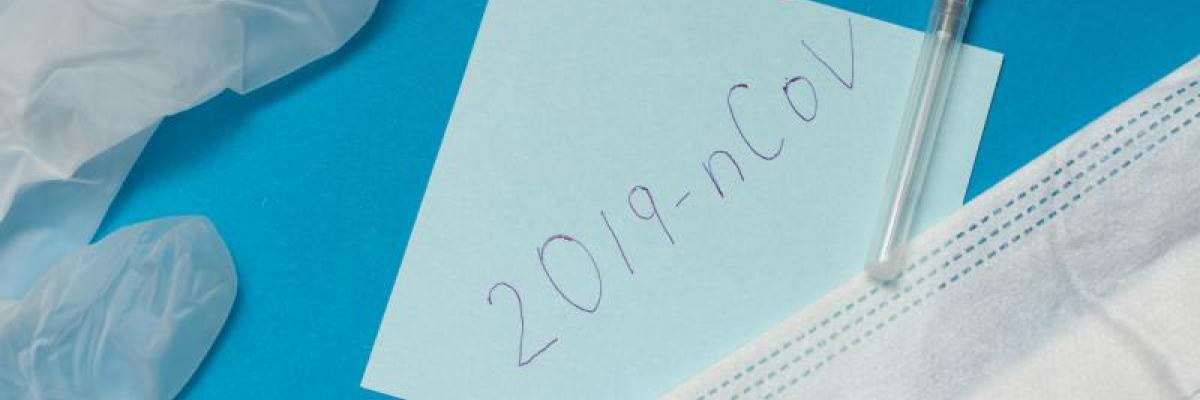C-reactive protein (CRP) results could help decide whether to treat Covid-19 with steroid therapy

A retrospective study of hospital Covid-19 patients receiving early steroid therapy suggests that treatment benefits those with high C-reactive protein (CRP) concentrations but in those patients with a low concentration, any benefit is outweighed by the risks from using steroids Glucosteroid drugs such as dexamethasone have a powerful anti-inflammatory effect and have been used to prevent or treat the serious inflammatory lung disease that may develop in Covid-19. However, there have been conflicting reports about their efficiency.
To help resolve uncertainty about the value of corticosteroid treatment, clinicians from the Albert Einstein College of Medicine and the Montefiore Medical Center in New York undertook analysis of data from their patients who had been admitted with a positive Covid-19 test between early March and early April 2020. Their object was to find out whether early steroid treatment reduced mortality or the need for invasive mechanical ventilation. Some of the clinicians had begun to treat patients with steroids and others had not, so they used untreated patients as an unmatched control group. CRP was measured because it is increased in concentration by tissue inflammation.
The authors elected to study only patients starting treatment with a steroid within the first 48 hours after admission, a total of 140. Most were treated with prednisone, some had dexamethasone or methylprednisolone. Outcomes were compared with those of 1666 patients who received no steroids. Patients who died or needed mechanical ventilation during the first 48 hours had been excluded. Nearly 40% of the patients studied were black and 36% were Hispanic. Overall, they found that the risks of death or the need for mechanical ventilation did not differ between treated and untreated patients. However, there were markedly different outcomes in those within predefined ranges of CRP concentrations.
Of all 1447 patients who had initial CRP concentrations recorded, those of the 198 patients with very high concentrations of 20 mg/dL or higher who were treated had a 77% lower risk of death or need for mechanical ventilation (odds ratio [OR] 0.23, 95% confidence interval [CI] 0.08-0.70). The 442 patients with high CRP concentrations between 10 and 20 mg/dL steroid treatment showed on average little effect of treatment (OR 1.03, CI 0.47-2.23). In contrast, of the 807 with only moderately raised values of less than 10 mg/dL, those treated had more than twice the risk of death or the need for mechanical ventilation than those not treated (OR 2.64, CI 1.39-5.03).The three odds ratios were consistent after adjustment for clinical factors.
These US results have strong parallels with the results of the acclaimed UK-wide controlled RECOVERY trial published in final form in the New England Journal of Medicine on 17 July 2020. A total of 6425 hospital patients with Covid-19 were randomly assigned to receive either 6mg dexamethasone daily for up to 10 days or usual care. In patients needing mechanical ventilation when entered in the trial, 28-day mortality was 36% lower in the treated than in the control group (OR 0.64, CI 0.51-0.81) and in those needing only oxygen on entry, mortality was 18% lower in those treated than controls (OR 0.82, CI 0.72-0.94). However, in those not needing oxygen on entry, those treated had on average a 19% higher mortality (OR 1.19, CI 0.91-1.55). The RECOVERY Collaborative Group collected no laboratory data but, as in the US study, glucocorticoid treatment was most successful in those certain to have high values for markers of inflammation such as CRP and least successful in those likely to have low values.
The senior author of the US study, Professor William Southern, chief of the division of hospital medicine at Einstein /Montefiore, said "Our findings suggest that steroid therapy should be reserved for people with high inflammation, as indicated by markedly elevated CRP levels". He added that for people who do not have significant inflammation, any benefit is outweighed by the risks from using steroids.
The US analysis, published online first in the Journal of Hospital Medicine on 22 July 2020, concluded that prospective randomized controlled trials are needed to refine the role of CRP.
CRP was not included in the World Health Organization Living Guidance on Corticosteroids for COVID-19 review published in September 2020.

